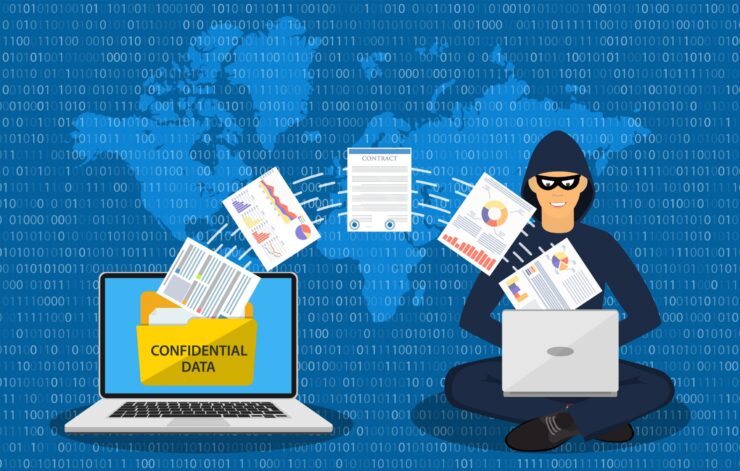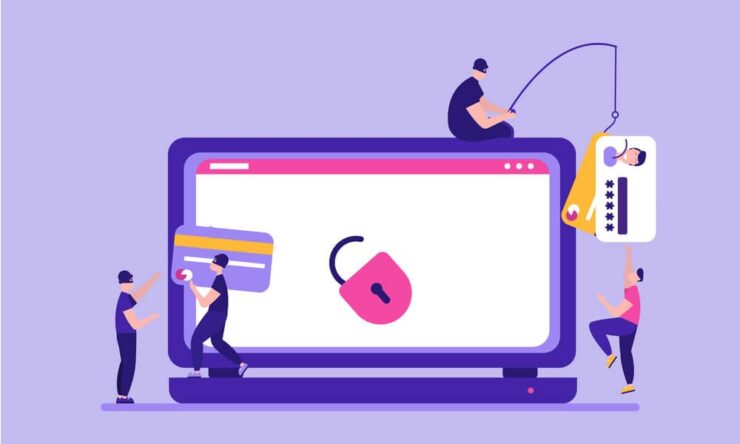There is no question that video games have become a huge thing, with millions of players logging in daily to play their favorite games. As technology advances, so does the gaming experience, with new games being released that push the boundaries of what was previously thought possible. However, with the rise of online gaming comes unknown security risks that players must be aware of.
One must understand the security risks that one has to face. Here we will discuss how to stay safer while gaming, even while using hacks from battlelog.co, highlighting the most common security threats and how to protect yourself.

-
-
Phishing Scams
-
Phishing scams are a prevalent threat in the gaming industry, and players must always be on the lookout for them. These scams are often operated in the form of emails or messages that appear to be from legitimate sources, such as game developers or payment providers, but are actually from cyber criminals. They may ask for sensitive information such as passwords or credit card numbers, which can lead to identity theft or financial loss.
Hence, to protect yourself from these scams, it is essential to be wary of any emails or messages that ask for sensitive information and never to click on links from unknown or suspicious sources. Instead, log into your account through the official website or app to avoid falling prey to these scams.
-
Malware
Malware, short for malicious software, is another security risk that players must be aware of. It can infect your computer or device, causing damage to your system and stealing sensitive information. Viruses, Trojans, and spyware are just some examples of this type of software.
Be cautious when downloading or installing software to avoid this risk. Always use an up-to-date antivirus program and keep your operating system and software patched and updated.

-
Online Gaming Accounts
Online gaming accounts are crucial to the gaming experience, as they store your progress, virtual assets, and personal information. This information is valuable to cybercriminals who may use it for identity theft, financial fraud, or to gain unauthorized access to your gaming account. Hence, to ensure the security of your online gaming account, it is crucial to follow these best practices:
- Use Strong Passwords: The very first line of defense for your online gaming account is a strong and unique password. An effective password must consist of at least eight characters featuring a mix of letters, numbers, and symbols. Hence, to enhance security, it is advisable to avoid using personal information that can be easily guessed, such as your name or birthdate, as part of your password.
- Enable Two-Factor Authentication: This adds another layer of security to your online gaming account. This form of authentication necessitates the provision of an additional layer of verification, for example, a code sent to your mobile device alongside your password. This significantly raises the hurdles for cyber criminals trying to access your account.
- Keep Your Personal Information Up-to-Date: Regularly updating your personal information, email address, and phone number can help you recover your account if it is ever compromised. Additionally, some games may require you to verify your identity, so it is crucial to have accurate information on file.
- Avoid Public Wi-Fi Networks: While they are convenient, they also are vulnerable to cyber threats. It’s recommended to steer clear of public Wi-Fi networks when logging into your online gaming account, as they are often not secure. Opt for a private, secure network instead.
- Be Wary of Social Engineering: Social engineering is a ploy utilized by cybercriminals to deceive individuals into divulging confidential information. This can manifest in the form of emails or messages that seem to be from a trustworthy source but are actually from cyber criminals. To safeguard yourself, never disclose personal information, such as passwords or credit card details, in response to an email or message.
- In-game Purchases: In-game purchases, such as virtual items or in-game currency, are a common feature of many online games. However, these purchases can pose a security risk, as cybercriminals may use fake or phishing websites to steal payment information.
Only make in-game purchases through the official game website or app to protect yourself. Be wary of any website that offers in-game items or currency at a significantly discounted price.

-
Identity Theft
Identity theft is certainly a growing concern in the gaming world. Players often need to provide personal information to create an account, which hackers can use for various purposes, such as opening credit cards or accessing bank accounts. In some cases, identity theft can even harm a player’s credit score.
-
Social Interactions
Social interactions are an integral part of online gaming, but they also come with their own set of risks. Cybercriminals may use social interactions to gather personal information or deceive players into downloading malware.
It’s essential to be cautious when engaging with other players online. Avoid sharing personal information with strangers, and only accept friend requests from people you know and trust. Additionally, be wary of links or attachments sent by other players, as they may contain malware.
-
Parental Controls
While online gaming can be a fun and educational experience for children, it’s crucial to ensure their safety. Parental controls can help you restrict access to inappropriate content and prevent your child from sharing personal information.
Most gaming consoles and devices come with built-in parental controls that allow you to limit screen time, restrict online interactions, and filter content. Take advantage of these tools to keep your child safe while they game.

-
Keep Your Gaming Software Up-to-Date
Gaming companies regularly release updates for their games to fix bugs and security vulnerabilities. These updates can include critical security patches that address known vulnerabilities that cybercriminals may exploit to gain unauthorized access to your computer or device. Therefore, it’s essential to keep your gaming software up-to-date to ensure that you have the latest security patches installed.
Most modern gaming platforms, such as Steam or Epic Games, automatically update games in the background when you launch them. However, it’s always a good idea to check for any available updates manually, especially if you haven’t played a game in a while.
By keeping your gaming software up-to-date, you can help protect yourself from known security threats and enjoy a more secure gaming experience.
Conclusion
Gaming is a fun and entertaining pastime, but it is vital to stay safe while doing so. By taking the necessary precautions and being aware of the security threats in the gaming world, you can protect your personal information and enjoy your gaming experience without worry. And with the tips listed above, you can do just that. Stay safe and happy ga
